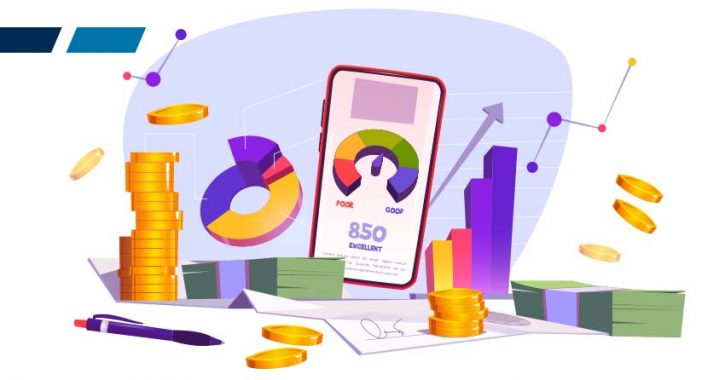 Kattintson ide a magyar verzióért.
Kattintson ide a magyar verzióért.
We have already examined ESG & SFDR topics from many angles. This autumn, our next ESG related blog post will discuss the connection between risk and ESG investing.
The Economic Times defines investment risk as “The probability or likelihood of occurrence of losses relative to the expected return on any particular investment.”
With ESG investing entering its mainstream phase, more and more investors are concerned about the potential risk/return trade-offs. Does ESG investing help or hurt investment returns and risk?
ESG and company performance
Companies protecting the environment, promoting diversity and supporting social initiatives certainly do good for the society, but are they also doing good financially? Some investors may worry that the high costs of adhering to strict ESG policies and implementing good practices may hurt financial performance as it is distracting management from their key focus: maximising profits and shareholder value.
However, studies we have reviewed paint a different picture. They generally show that there is in fact a positive correlation between good ESG attributes and company performance. Firms with robust ESG practices usually experience a lower cost of capital, and perform better on operational metrics such as ROE, ROA or profitability.
MSCI’s research, for example, suggests that companies with a higher ESG rating tend to have lower systematic risk exposure, evidenced by less volatile earnings and smaller systematic volatility, and they experience lower betas and lower costs of capital than companies with a lower rating. Investors also need to account for the ’materiality’ of ESG issues: their actual business impact on a company. Some issues are symbolic and not necessarily financially relevant. In other words, scores that account for the financial ‘materiality’ of ESG issues can be a better signal to understand related risks and how a company manages them. A 2015 Harvard study found that firms which perform well on ESG issues classified as ‘material’ outperform those that do not. Meanwhile, a firm’s strong performance on ESG issues classified as ‘immaterial’ could not be linked to better financial performance.
ESG and investment performance
Critics often argue that incorporating ESG principles into the investment decision-making process may lead to sub-optimal returns. They say that ruling out certain investment opportunities increases risk, as investors might miss out on potentially lucrative products and have less diversified portfolios. ESG proponents, on the other hand, argue that the short-listed companies will always count as more attractive opportunities to invest.
Can we link ESG quality to investment performance directly? Looking at the past performance of ESG funds and indices, we can see that they have been tracking their non-ESG equivalents closely, or even showed a slight outperformance. According to Morningstar’s analysis, sustainable Global Large-Cap Equity funds have outperformed traditional funds by 0.6% between 2009 and 2019. Sustainable funds have also exhibited higher survivorship rates than their traditional peers, meaning fewer have closed during this time period, in relative terms.
A word of caution
As we have shown above, a heap of evidence suggests that investing sustainably does not mean sacrificing returns. Nevertheless, investors should be wary of the fact that ESG is still a relatively new research area, compared to traditional financial analysis, a crowded space where the concepts and practices used by research agencies and academics are not homogeneous and they may reach different conclusions. As more reliable data become available and are consolidated, we expect results that provide the industry with more clarity on the connection between ESG assessment and the risk/return characteristics of investment portfolios.
Stay tuned
In 2020, COVID-19 shook the world and the financial markets. In the next part we will examine how sustainable investments have performed in these times of unprecedented social and economic distress.
Sources:
Ashwin Kumar, N., Smith, C., Badis, L., Wang, N., Ambrosy, P. and Tavares, R., 2016. “ESG factors and risk-adjusted performance: a new quantitative model.” Journal of Sustainable Finance & Investment, 6(4), pp.292-300, DOI: https://doi.org/10.1080/20430795.2016.1234909.
Ilhan, Emirhan and Sautner, Zacharias and Vilkov, Grigory, 2020. “Carbon Tail Risk: The Review of Financial Studies, forthcoming.” Available at SSRN: https://ssrn.com/abstract=3204420 or http://dx.doi.org/10.2139/ssrn.3204420 HSBC (2020).
Khan, Mozaffar N., George Serafeim, and Aaron Yoon, 2015. “Corporate Sustainability: First Evidence on Materiality.” Harvard Business School Working Paper, No. 15-073. Available at: https://dash.harvard.edu/handle/1/14369106.
abrdn (2021)
BNP (2020)
McKinsey (2019)
Morningstar (2018)
Morningstar (2019)
Morningstar (2020a)
Morningstar (2020b)
MSCI (2018)
The Economic Times



